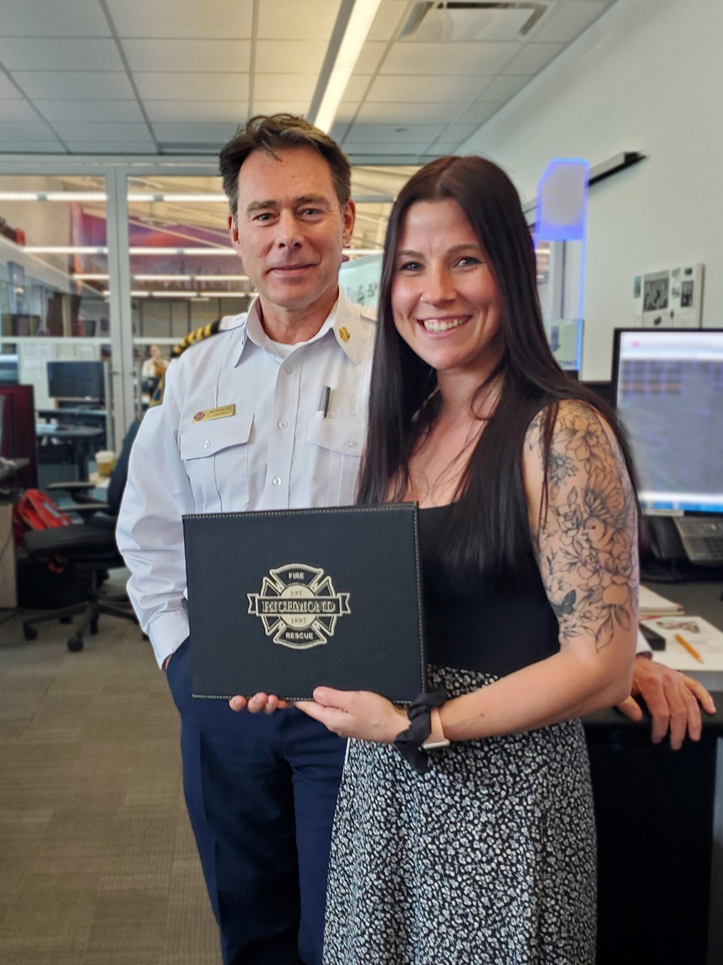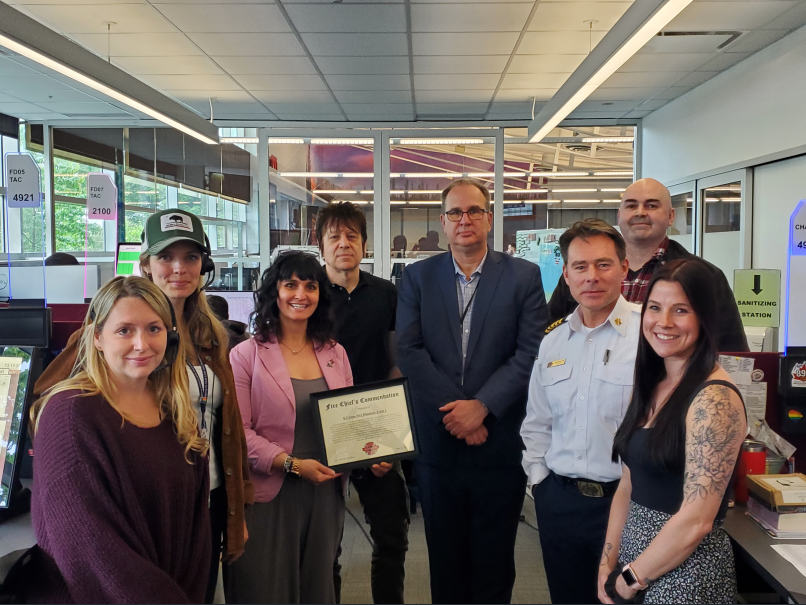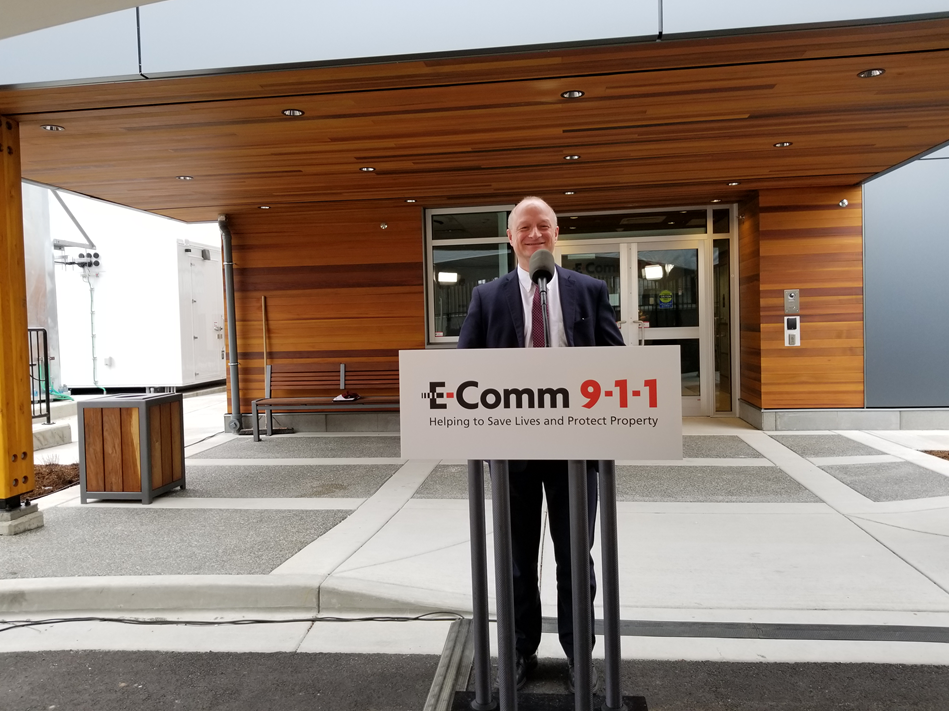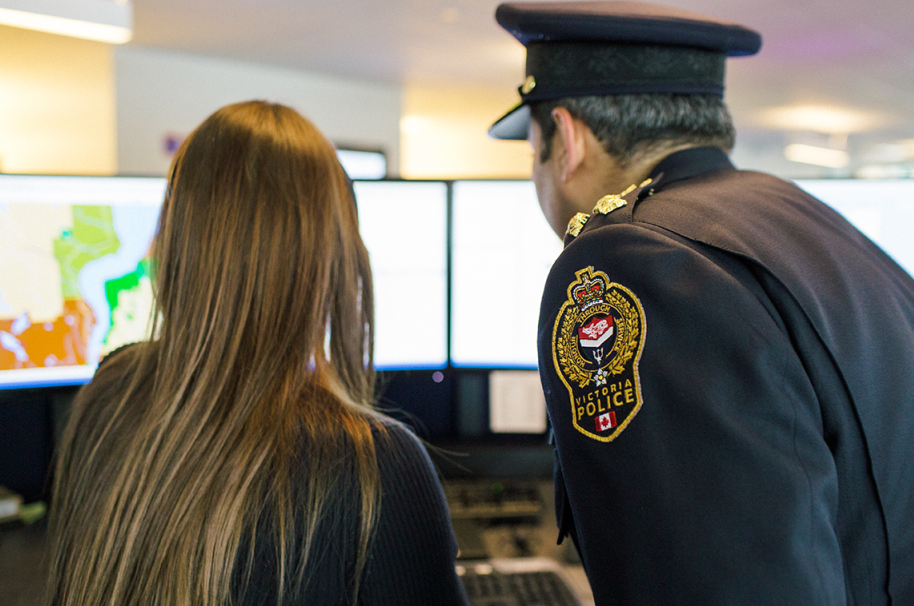Transformation initiatives spur positive momentum with more to come in 2024
E-Comm has released an update on the progress made to modernize and stabilize operations as part of a multi-year Transformation Plan.
2023 marked the first full year of a five-year plan, approved by E-Comm’s board in November 2022, to address long-standing challenges by providing dedicated funding, staff and capacity to implement needed improvements.
Despite an 11% increase to 9-1-1 calls in 2023, transformation initiatives are having an impact on improving service levels and answer times for both emergency and non-emergency calls.
“Our employees play a critical role in public safety as the lifeline for the public and first responders, and it is through their collective efforts that we’ve seen positive momentum from the changes that have been implemented to date,” says E-Comm’s Chief Transformation Officer Nancy Blair. “There’s more work to do and we’re committed to building on the progress made last year, in order to provide the best possible service to the public and our first responder partners while ensuring our employees are properly supported.”
Highlights from 2023:
- 98% of 9-1-1 calls were answered in less than 5 seconds provincewide, despite an 11% increase in 9-1-1 calls for police, fire, or ambulance. This was the best 9-1-1 service level in 5 years.
- On behalf of the police agencies it serves, E-Comm exceeded service level targets for police emergency calls in the Lower Mainland, answering 89% of police emergency calls within 10 seconds and met the target of 88% on Vancouver Island. E-Comm also exceeded its service level for fire emergency, answering 93% of fire emergency calls within 15 seconds. Note: 9-1-1 calls for ambulance go directly to BCEHS for file generation and dispatch.
- 63% of police non-emergency calls for Lower Mainland police agencies E-Comm serves were answered within 3 minutes or less (up from 44% in 2022) with an average speed to answer of 4 minutes, down from almost 11 minutes in 2022. E-Comm met its service level of 80% for non-emergency police calls on Vancouver Island. Improvements to police non-emergency call-taking service levels remain a key priority for E-Comm in 2024.
Key improvements & ongoing efforts
- New teams, tech and training for non-emergency calls
A dedicated non-emergency call taking team was established in 2023 to improve service to the communities we serve. E-Comm collaborated with our policing partners to simplify and consolidate over 1,500 standard operating procedures into under 100, which has streamlined training for our new call takers. A digital agent pilot with the Vancouver Police Department and the development of a new call handling system with call wait times and call back features, (coming this spring) are all part of ongoing efforts underway. Read more about non-emergency improvements.
- Increased recruitment, retention and employee support
E-Comm hired over 170 employees in 2023 to help improve operations, address long-standing capacity and skills gaps, and get staffing closer to the level necessary to meet targeted service levels consistently. An expanded peer coaching program provides enhanced support to new call takers and has improved retention by better on-the-job mentoring. E-Comm also concluded a new collective bargaining agreement and compensation review, with improved benefits and mental health supports, improving our ability to attract and retain great people.
- Next Generation 9-1-1 and enhanced cybersecurity
E-Comm is playing a lead role, working with the Province of BC, local governments and partner agencies to support the federally-mandated implementation of “Next Generation” 9-1-1 (NG9-1-1) technology improvements. The program will move 9-1-1 voice calls to a new digital, IP-based network, the transition to which is to be completed by March 1, 2025. In March 2023, the Province of BC contributed $90 million to E-Comm, to support the initial implementation, which represents a significant avoided cost for our local government and agency partners. Additional technology improvements include: a new data resiliency centre, enhanced cybersecurity measures, and expanded data and analytics capabilities to guide and enhance operations and information sharing.
Read the full Transformation Plan Update here.
-30-
About E-Comm
E-Comm is the first point of contact for 9-1-1 callers in 25 regional districts in British Columbia and provides dispatch services for more than 70 police agencies and fire departments across the province. E‐Comm also owns and operates the largest multi‐jurisdictional, tri‐service, wide‐area radio network in the province used by police, fire and ambulance personnel throughout Metro Vancouver and parts of the Fraser Valley.





